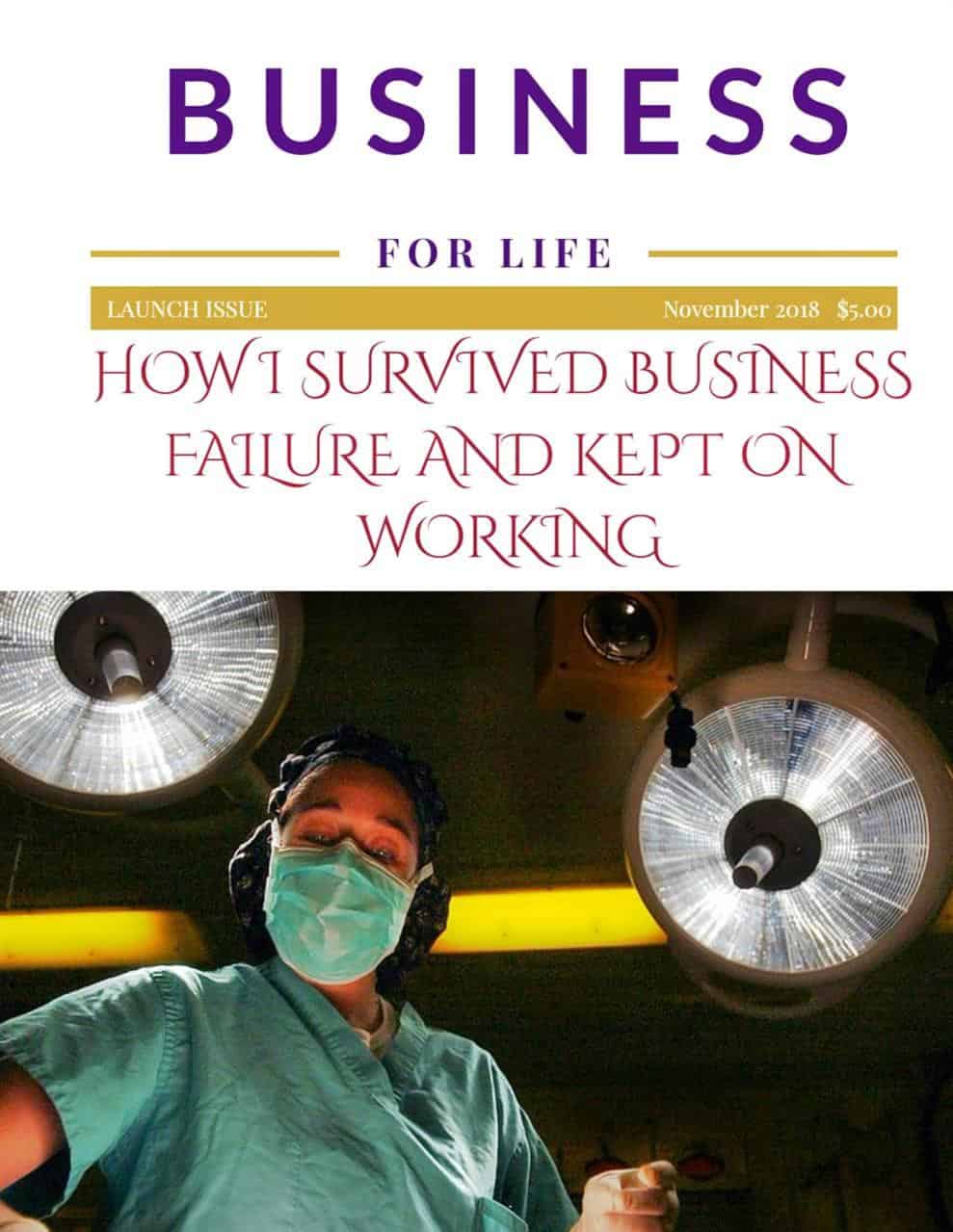
Claim bankruptcy in Ontario: Case study introduction
For today, and the next few weeks, I want to give you some interesting case studies direct from our files. I will not mention any real names of course. Hopefully from these case studies, you will see that we do a lot more than just allow people or companies to claim bankruptcy in Ontario.
Claim bankruptcy in Ontario: A variety of problems
Today’s case study deals with our client who is a specialist medical doctor and surgeon. We will call her Dr. X. She had an ongoing successful career and then opened up a specialty high-end clinic to offer services not paid for by OHIP, the provincial medical plan. Unfortunately, Dr. X did not get the best advice from her professional advisers when she established the new business venture.
She set up her clinic in a separate building that she purchased. Dr. X then had it renovated extensively to meet the business’ needs, leased or purchased equipment and hired staff.
This new venture was financed entirely by debt:
personal debt such as mortgage financing against the matrimonial home;
equipment loans or leases in her personal name; and
Equipment and mortgage debt in the new business venture corporation for which Dr. X personally guaranteed it.
Therefore one way or the other, her personal responsibility was for 100% of the debt to get the business started. Her husband was responsible jointly with her for the mortgage raised against the matrimonial home.
The cash flow of the business was insufficient to pay the operating costs and debt financing. She had to keep borrowing money personally to keep the new business alive. The stress this caused affected her previously stellar activities as a surgeon and hurt her marriage. By the time Dr. X was came to us, she and her husband were separated and divorce proceedings were underway.
Claim bankruptcy in Ontario: And then it got even worse
To make matters worse, she could not attempt to liquidate assets to pay down debt and ease the burden. Like most equipment, the clinic’s equipment was not worth more than its original cost. There was no excess equipment either.
The building could not be sold and leased back for a very bad reason. There was a large environmental problem associated with the building which was not discovered through due diligence prior to purchasing it. The issue arose when she tried to refinance.
The potential lender performed a Phase 1 Environmental Study, which indicated that a earlier use in the building produced contaminants which were buried in the ground. The contaminants were leaching into the neighbours’ respective properties. So now there was further personal liability exposure as the sole Director of the company that owned the real estate!
Claim bankruptcy in Ontario: Filing bankruptcy in Canada would give Dr. X more headaches
Dr. X came to us convinced that she had to go bankrupt. The stress of her failing business was taking a huge toll on her normal duties as a surgeon and her marriage was over. She had previously seen a different licensed insolvency trustee and was convinced from that meeting that bankruptcy was her only answer.
Dr. X considered herself a total failure, in spite of she was still a sought after as a brilliant medical doctor and surgeon. We considered her assets and liabilities, income and expenses and her overall situation.
Claim bankruptcy in Ontario: More complications
To further complicate matters:
The matrimonial home was listed at the amount required to clear all mortgages which was well above market value.
Once Dr. X inevitably stopped making the first mortgage payments on the matrimonial home, the Bank holding the mortgage would begin power of sale proceedings. The first mortgagee would probably suffer a shortfall on the sale and Dr. X and her estranged spouse would be responsible for the shortfall on the first mortgage and the entire balance of the second mortgage.
Dr. X had a life insurance policy with a cash surrender value (“CSV”). The CSV was not exempt from seizure by a bankruptcy trustee because the beneficiary was her Estate. In a bankruptcy, the CSV would go to the Trustee for the benefit of her creditors.
Dr. X did not know if she could get replacement insurance coverage at all and if so, at a reasonable cost.
There were many creditors who currently had a contingent claim against Dr. X with a very high dollar volume. These claims would ultimately be crystallized. In a bankruptcy, we anticipated that a lot of angry ordinary unsecured creditors, many of whom were sophisticated, such as banks and equipment lenders/lessors, would oppose her discharge from bankruptcy.
In a bankruptcy, Dr. X would have to pay about $82,000 in surplus income payments to us as her bankruptcy trustee over a 21 month period for a monthly payment of $3,905. Dr. X could not afford to pay that much each month and keep her normal medical practice afloat.
Bankruptcy was not a good answer for Dr. X. Notwithstanding she earned a high income, the irony was that she could not afford to claim bankruptcy in Ontario!
Claim bankruptcy in Ontario: Our assessment
We had to deal with two problems; one financial and one emotional. Dr. X was an emotional wreck as a result of the failed business venture with all of its problems. We actually had to deal with that first. It is normal for a licensed insolvency trustee to take a holistic approach. The debtor facing financial problems always needs two outcomes: (i) a solution that will allow them to shed their debts and get piece of mind; and (ii) become rehabilitated.
We advised Dr. X that a personal bankruptcy was not the answer for her. We told her that she first had to shut down her clinic. She had to deal with the employees to make sure that they were paid up to the last date work their normal wages and vacation pay. They also needed to get their Record of Employment and T4 Statements as quickly as possible. Unfortunately there was no money for pay in lieu of notice.
Claim bankruptcy in Ontario: How to deal with the failed business venture
We then advised Dr. X that she should not bankrupt the corporation carrying on this new business. Rather, she should call up the first mortgagee and tell that she is abandoning the business premises and is sending the keys over. Then call up the equipment lessors and the lender that did some equipment financing to tell them the business has shut down and they should contact the first mortgagee to gain access to retrieve their property.
Next we advised Dr. X to safeguard the business books and records, so that she could have her accountant file final tax returns. She would also have the records for when Canada Revenue Agency wished to do an audit on the business activities.
The final piece of advice for Dr. X with respect to her new business venture was this. After performing the above steps, walk away. This would end the stress of operating a failing business.
Claim bankruptcy in Ontario: Our assessment and his personal financial fix
All of the contingent debts from the failed business venture had not yet crystallized. They were still contingent. We worked out a cash flow plan with Dr. X that she could keep current with, now that she had abandoned and stopped funding the debt incurred because of the failed business. She also stopped paying the first mortgage on the matrimonial home as the value of the home was now less than the total of the mortgage debt against it.. We worked with Dr. X on a plan to avoid bankruptcy, by filing a formal restructuring proposal under the Bankruptcy and Insolvency Act (Canada) (“BIA”).
Claim bankruptcy in Ontario: The advantages of our strategy
The advantages of this strategy, if the restructuring proposal could be fully performed, are:
Dr. X would not give up her assets to a bankruptcy trustee;
She would not lose her life insurance coverage or CSV;
All of her debts could be eliminated through the restructuring proposal;
Although the total of her restructuring proposal payments had to be more than her creditors would get in her bankruptcy, we could term those payments out to a maximum of 5 years;
Her estimated monthly payment would be less than the monthly surplus income payment in a bankruptcy; and
Dr. X would avoid bankruptcy and an opposed discharge process entirely.
Claim bankruptcy in Ontario: The result
Dr. X followed our advice. Her restructuring proposal was accepted by her creditors qualified to vote at the meeting of creditors held 21 days after the filing of the restructuring proposal. The contingent claims had not yet crystallized. Although eventually those creditors were allowed to file their proper respective claims and take part in the dividends paid out to the unsecured creditors, we made it successfully through the voting process. The proposal was then approved by the Court.
Dr. X not only maintained her regular monthly proposal payments to us, she was able to pay off the proposal early. The reason for this was that now that she had a clear head and no longer felt she was a failure, she could focus on her medical practice and surgery, which once again flourished. Her income and savings rose. These are some of the benefits that financial rehabilitation brings. Dr. X also avoided going bankrupt.
Claim bankruptcy in Ontario: Does Dr. X’s financial problems sound familiar to you?
I present this case study to show how, as a licensed insolvency trustee in the GTA, we look at the entire story of each person or company that comes to us for help. We look at your entire situation and devise a strategy that is as unique as you and your problems; financial and emotional. The way we stopped Dr. X from going bankrupt and devised an alternate plan for her, allowed her to solve her financial problems and get her life back.
We know that people facing financial problems need a realistic lifeline. There is no “one solution fits all” approach with the Ira Smith Team. If any of this sounds familiar to you and you are serious in finding a solution, contact the Ira Smith Team today.
Call us now for a free consultation. We will get you back on the road to a healthy stress free life and your recovery will be as pain-free as possible. We may be able to stop you to claim bankruptcy in Ontario!


